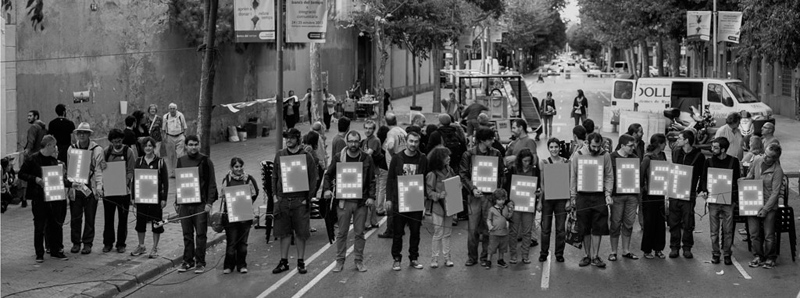Resistances and appropriations. Urban laboratories of social and cultural experimentation in the city of Valencia
DOI:
https://doi.org/10.1344/regac2015.1.11Keywords:
collaborative processes, self-management, instituting practices, urban laboratories, cultural resistanceAbstract
The context of the current systemic crisis has helped to highlight and exacerbate shortages and conflicts caused by inadequate national and local cultural policies. In the city of Valencia (Spain) such policies have generated many and varied answers of a collective nature. In recent decades, an important part of the associative growth in Valencia has been linked to the defense of collective heritage or cultural revitalization of basic infrastructure. In some cases (the Salvem, the Viu, or urban orchards) as a defense and resistance to institutional policy designed for specific neighborhoods or urban areas. In other cases (Solar Corona, La Minúscula, La Calderería, Desayuno con Viandantes, Cabanyal Intim) developing various forms of appropriation of spaces to fill the lack of interest by public institutions. Many of these experiences have become urban experimentation laboratories for social and cultural transformation. These collective initiatives have taken shape in a dense and local network in which there are frequent collaborations between associations, citizens' platforms, groups, and self-managed spaces or media. At present, they are recognized as essential agents of the local cultural management due to their instituting and mobilizing capacity. This paper shows a mapping of cases of small groups and spaces within the Valencian recent context. They propose other ways to create culture, linked to the social fabric and the needs of everyday life. They value affective items as a political catalyst, trying to work with conflicts rather than hide them, building through participation and negotiation.Downloads
Published
2015-12-28
Issue
Section
Artículos
License
Authors who publish with this journal agree to the following terms:
- Authors retain copyright and grant the journal right of first publication with the work simultaneously licensed under a Creative Commons Attribution Licensethat allows others to share the work with an acknowledgement of the work's authorship and initial publication in this journal.
- Authors are able to enter into separate, additional contractual arrangements for the non-exclusive distribution of the journal's published version of the work (e.g., post it to an institutional repository or publish it in a book), with an acknowledgement of its initial publication in this journal.
- Authors are permitted and encouraged to post their work online (e.g., in institutional repositories or on their website) prior to and during the submission process, as it can lead to productive exchanges, as well as earlier and greater citation of published work (See The Effect of Open Access).



